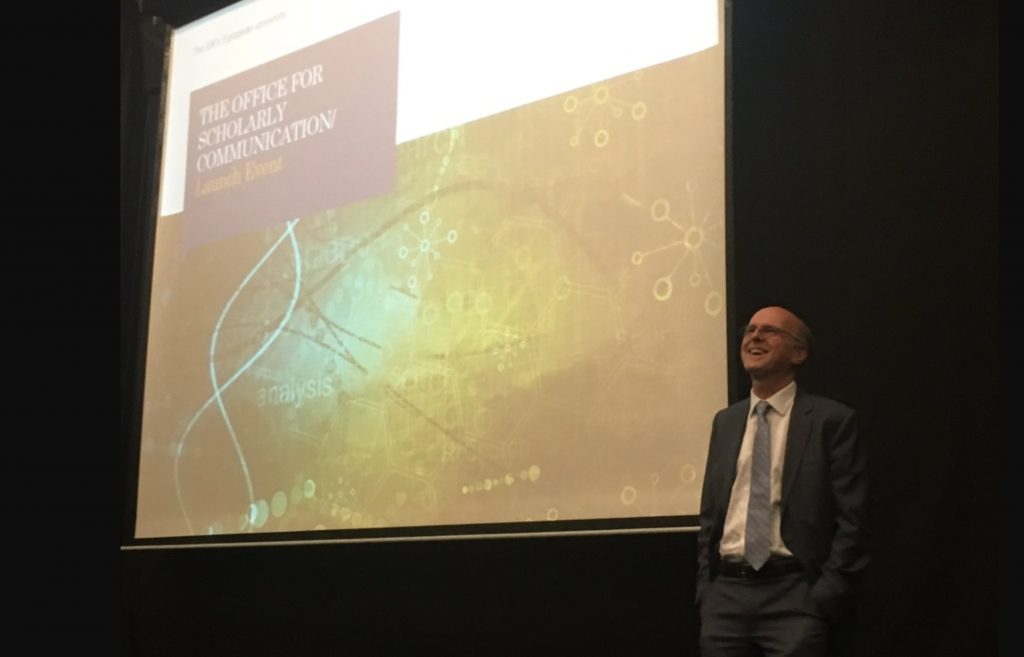Following this post saying we are coming soon… one year later, we are here!
Over the past three months I have had many meetings about the OSC and the initial question is usually ‘What is it?’ – and in response to my reply ‘What do you think it is?’, I’ve had answers from “The OSC is to enforce REF open access compliance” to “The OSC will be helping researchers get a TV deal”. The launch was a fantastic opportunity to highlight why we need an OSC and what the office will do.
The proposal for the OSC established that the office would be:
“A centre for excellence in scholarly communications that is highly visible, highly accessible and understanding of the needs and concerns of the academic community across all faculties – a building block for Kent’s inclusive, supportive and disruptive research environment. The Office for Scholarly Communication will actively align support from Research Services, Information Services and other pockets of excellence to create a single point-of-need service creating added value in and from scholarly communications activity.”
(IS SMT January 2016 – Office for Scholarly Communication proposal – Model)

The slides explain a little more about what we are trying to achieve.
So, now you know we are here – what next?
The overarching aim of the office is to be researcher focused, so the more feedback we have from you as researchers about the challenges you are facing, the better. Where we see the major issues and common pain points emerging from our discussions, we can focus our resources in overcoming these common challenges.
We know we have excellent open access, research data support and support for impact available at Kent, which is where many institutions are focusing their scholarly communications support – we are moving beyond that to look at a wider remit, but in order to do this, and to focus support on the most relevant areas, we first need to establish how our researchers are communicating their research, beyond the traditional outputs. If you are writing a policy brief, curating an exhibition, blogging or creating board games, however you are communicating your research, let us know!
For the future – Kent & the Scholarly Communication Environment
The OSC will look at new tools, new challenges & new standards in scholarly communication as they emerge. Looking at developments such as UKSCL, DORA, and the Leiden Manifesto and staying on top of the latest developments, so that individuals don’t have to. The OSC will also explore and implement the most appropriate tools and systems for Kent – looking at how we optimise our use of freely available resources such as Open knowledge maps, BASE and Google Scholar and get the most value from tools such as Kudos and Altmetric
